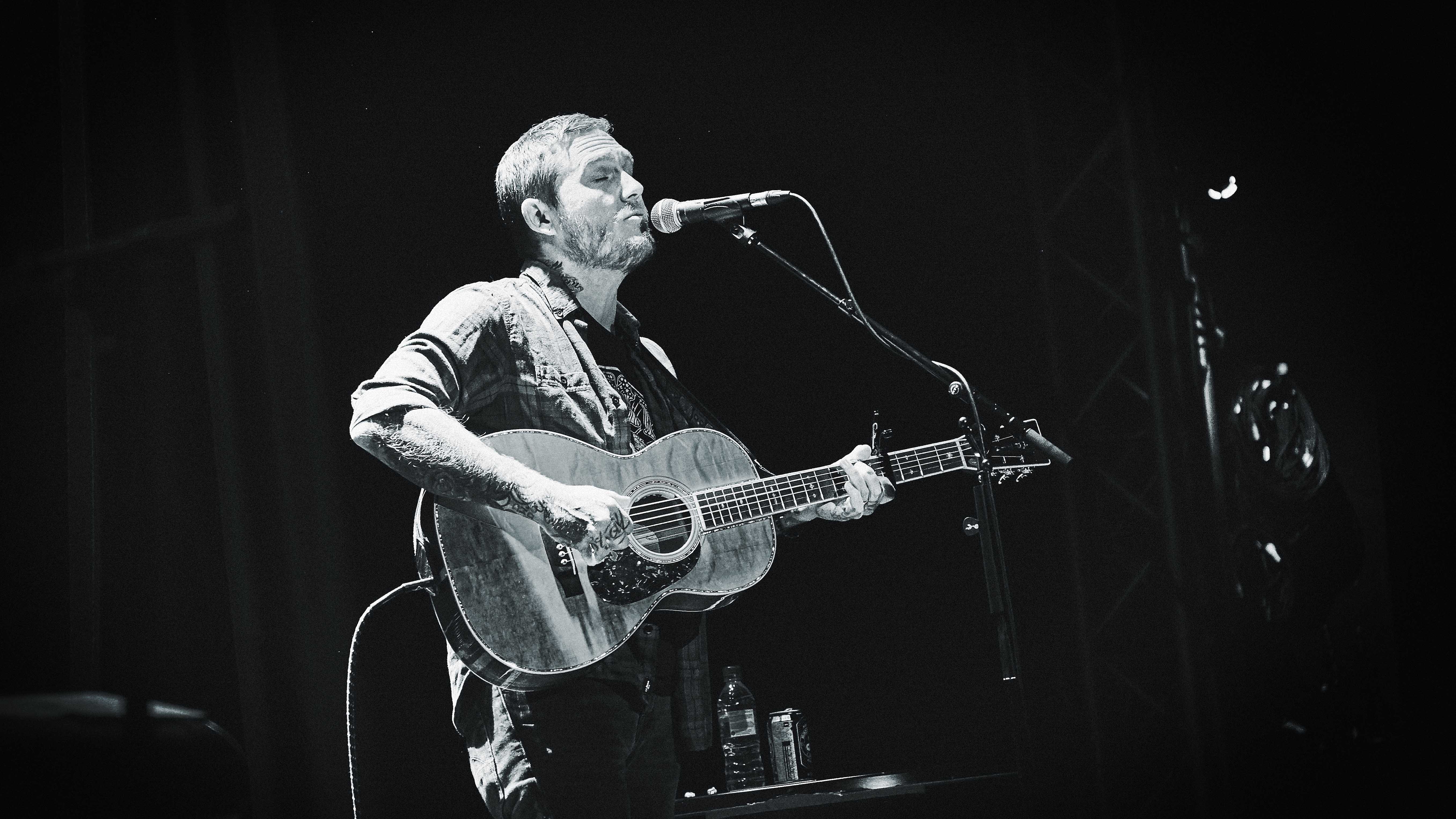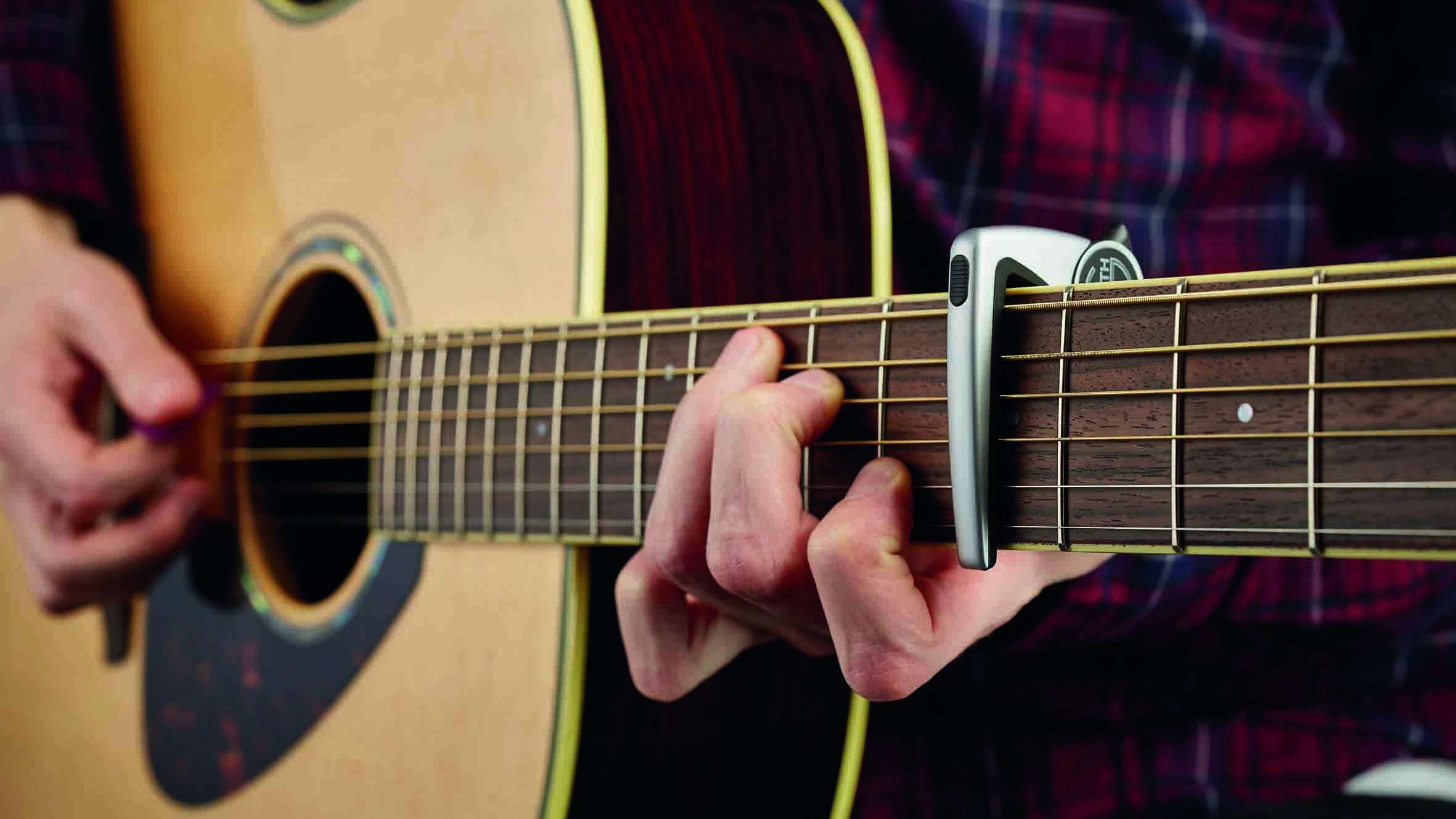
Brian Fallon is a student of songwriting – he's spent nine albums studying and exploring the craft with The Gaslight Anthem, Horrible Crowes and his solo work.
This year's Local Honey – his third solo record – proves just how far he's come. It's a work of depth and subtlety; both intimate and layered with acoustic and electric guitar, as well as Fallon's developing piano skills.

He's a songwriter who strives to challenge himself and he's learned a lot over the years. So we thought we'd ask him to pass on some of his hard-earned wisdom to the rest of us budding songwriters. Unsurprisingly, he's got some valuable insight to share.
Brian Fallon's rescheduled European tour for Local Honey with his band The Howling Weather will now take place in November / December 2021. All previous tickets from the 2020 tour will be honoured but see brianfallon.net for ticket purchasing info.
1. Try writing about the present
"It's harder to write about the present because you have to analyse things without time"
"I wasn't necessarily a nostalgic person in my day-to-day life, but in writing it's so much easier to write about things in the past because you have perspective and you also forget the bad. You have a romance about the past like it was somehow better than the current, which it wasn't it's just that you remember differently.
"It's harder to write about the present because you have to analyse things without time, and sometimes they feel mundane. Somehow your day-to-day can feel like; I got up and went to work today. But you had many feelings on the way to work. You saw many things and you saw many people, you just didn't pay attention.
"So it took me a lot of time and a lot of sitting quietly. I cannot tell you how many hours I spend just sitting and doing nothing; sitting in the garden, just sitting. Not drinking. You have to think. Yes, just sitting by myself thinking allowed my brain to work. What keeps coming back? This, ok I'll write about it. It was a process."
Want all the hottest music and gear news, reviews, deals, features and more, direct to your inbox? Sign up here.
2. Your lyrics don't have to rhyme
"I don't know why but at one point I realised, even with The '59 Sound in the chorus, not one line rhymes in the chorus. And when I was writing I didn't know that. I didn't realise until ten years later. Rhymes are cool or they're not cool. But sometimes they can take away – if it gets too much… train / Spain… and your ear will actually stop listening if you know what's going to come next."
3. Keep a journal
"I journal all the time. Sometimes I'll even write down word associations. I'll be like, 'Football, store, bricks, statue, pipes, London rain'. A slew of words and then I'll try to figure out what I'm saying later.
"That's writing down physically in a book, because it's just faster for me to write it down. I'm from the generation who grew up when there wasn't phones so I'm still slower on the phone. And it's more annoying to copy and paste. In a book I can just write real fast."
4. Keep your ideas – then go back to them
"I record musical ideas on the phone all the time. Any idea that I think is remotely good I'll record. I've got hundreds and I'll go through them, usually about 30 at a time. Sometimes I think, that's cool and other times, oh that's terrible – that is not a good idea."
5. There's no hard and fast rules to the songwriting / demoing relationship
"You have to do any way that works. You can't have one way"
"I record as I'm writing a lot, but not always. The Horrible Crowes record, Elsie, was 100% written like that. This record, none of it was written like that. But Sleepwalkers, Handwritten, lots of those songs were written like that. Straight into recording – not in the studio, but as home with the demo process. I never go into the studio without the song written.
"You have to do any way that works. You can't have one way. You'll run out on inspiration if you do that."
6. Try different keys

Unlock a world of musical ideas with our guide to this essential guitar accessory
"I try different keys all the time with every song. We move songs around until it sounds right. That was something Ted Hutt taught me ['59 Sound and Sleepwalkers producer]. How do you know when it sounds right? Everybody in the room says, 'Oh that sounds awesome'.
"The key of the song is always about the vocal. One will sound significantly better than the other ones.
"And vocals are the same as the guitar in that just because you can do something, doesn't mean you should. That's restraint and that definitely comes with time and experience. When you're a kid, you're going for it all the time and there's no restraint."
7. There's no shame to staying in standard tuning
I play in alternate tunings a little bit not for my own stuff. Some people think they're more elite if they're playing in open E or open G or whatever. They somehow feel like they're a better player. Sometimes it's like [some] jazz musicians, they're like, 'Oh we're better than you because we play jazz.' No you're not. It's just different.
"There's a reason for open tuning. It sounds great when you're doing a certain thing but when you're not doing that thing, it sounds really bad because it's so muffled. If you try to do intricate chording in open tuning, you can't play clean. And it's not versatile.
"Everybody wants to do the [open G] Keith Richards thing except the problem is, you only sound like Keith Richards. And when you sound like Keith Richards you're a bad version of Keith Richards. There's only one good [example] and that's the first Black Crowes record. That's the only band that ever did it good. There is Let It Bleed and there is Shake Your Moneymaker. They're the best Rolling Stones records! I love that record, by the way.
"Derek Trucks is killer with open tuning, and if you're doing that stuff, great. But Warren Haynes does pretty good on slide with standard tuning. And you can play the solo to [Tom Petty's] I Won't Back Down without being in open G. I learned it in both versions. It's harder in standard but you can do it, you've just got to be quick!"
8. You don't have to write about what you know
"Only writing about what you know is the worst advice ever"
"If you're not feeling inspired, you've got to listen to different music. And whatever you're doing, stop doing that. Whatever well you're going to for drawing inspiration from, you need a new one.
"So if you're listening to music, go to film, go to the museum and look at art. And sometimes you need to change perspective. So if you're writing about you, maybe you need to write from someone else's point of view.
"Only writing about what you know is the worst advice ever. I would write about what you don't know because then you have a unique perspective – you don't know. The myth that art needs to be true or accurate is such a false teaching. If you want accuracy go to the library and find a history book. If you want art, let be what it is."
"Nobody said that the Talking Heads song needed to be true – I don't know if she was or she wasn't, but I'll tell you what, I like it!"
Check out Brian Fallon's 2021 tour dates over at brianfallon.net

Rob is the Reviews Editor for GuitarWorld.com and MusicRadar guitars, so spends most of his waking hours (and beyond) thinking about and trying the latest gear while making sure our reviews team is giving you thorough and honest tests of it. He's worked for guitar mags and sites as a writer and editor for nearly 20 years but still winces at the thought of restringing anything with a Floyd Rose.
